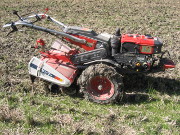Czech Republic (MNN) — Austria had the 7th wettest spring in about 150 years. With the ground over-saturated, the rivers rose throughout Central Europe and eventually spilled over banks.
This time, though, the flooding wasn’t stopped by banks of sandbags. Multiple rivers rose at once, spilling into historic cities. At least 16 people are dead; more people remain missing. More rain came in over the weekend, adding to swollen riverbanks.
Jeff Griffith, a TEAM (The Evangelical Alliance Mission) church planter in the Czech Republic, says, “It’s not over yet, so we’re not even sure how much it’s going to cost us because there’s going to be more flooding.”
Tens of thousands were evacuated from Germany and the Czech Republic as continuous rains and swollen rivers threaten to flood cities and towns. The recent memory of floods in 2002 caused an estimated $20 billion in damages. Griffith explains, “In 2002, was what they called ‘the 100 year flood’, a flood that happens probably only once every 100 years. The one we’re experiencing right now is what they call a ’50-year flood’.”
In Prague, the capital of the Czech Republic, many parts of the city are under water. He notes that they have work just north of Prague, in Kralupy. “Our ministry center, the last time, was flooded. This time, by the grace of God, it was protected. The waters came right up to the door level, but no further. So, our building remains dry. It was like an act of God to keep the water from coming any further, because it should have been higher.”
However, not everyone fared as well. The Czech Republic declared a state of emergency and deployed hundreds of soldiers. At least eight cities and districts across Germany also declared states of emergency over the last few days. Hungary, Poland, Slovakia and Switzerland followed suit in the most flood-prone areas, thought they were affected to a lesser extent by the waters.
By comparison, the 2002 inundation was the biggest natural disaster in modern Czech history. In some areas, they were the worst in 500 years. Still, this disaster is occurring in a fully developed European nation whose government has resources that can be brought to bear. That’s where the danger lies, says Griffith. “Getting the money is one thing; but actually having someone there to encourage them to keep moving forward, taking one more step when they don’t feel like it, we just don’t have enough people to do that. That’s the kind of help they really need after a disaster.”
Taking the long-view on the recovery, he said having lived through it in 2002, he knows now what to ask for, in terms of help. Prayer, of course, is essential. Even funding can help cash-strapped churches reach out to flood survivors. However, as the months wear on and the depression sets in, the rebuilding they need help with is as obvious as gathering materials.
 In fact, says Griffith, due to different building and electrical codes, sending North American work teams isn’t very helpful. However, if their church planting team spends all their time meeting the spiritual needs, they can’t get their regular work done. That means, they need, “Short term missionaries to come for six months a year to help us with our typical outreach ministries so that those of us who speak Czech, can actually spend time with Czechs, helping them walk through it. I think that would probably be one of the greatest things that a church or a group of people could do.”
In fact, says Griffith, due to different building and electrical codes, sending North American work teams isn’t very helpful. However, if their church planting team spends all their time meeting the spiritual needs, they can’t get their regular work done. That means, they need, “Short term missionaries to come for six months a year to help us with our typical outreach ministries so that those of us who speak Czech, can actually spend time with Czechs, helping them walk through it. I think that would probably be one of the greatest things that a church or a group of people could do.”
After we spoke with Griffith, he sent one more email considering the import of the emergency. He writes:
“It’s early morning and the radio alarm clock goes off. It’s the voice of God saying, “ There’s a flood in Europe. Whom shall I send to tell them of my love and concern?” There is no answer as the snooze button is hit. About ten minutes later it goes off again. Once more the voice of God is heard saying, “There’s a flood in Europe. Whom shall I send to tell them of my love and concern?”
In 2002, the alarm went off and people became more aware of the spiritual needs of Europeans and especially the Czech people. Very few answered God’s wake up call. Those that came are now in a position to help those who are suffering since they have learned the language and can verbally share the Good News of Jesus Christ. 11 years later the alarm has gone off once more. How many will come this time so that when another disaster hits, the Bride of Jesus will be better prepared to speak and be the Good News to Europeans?”

